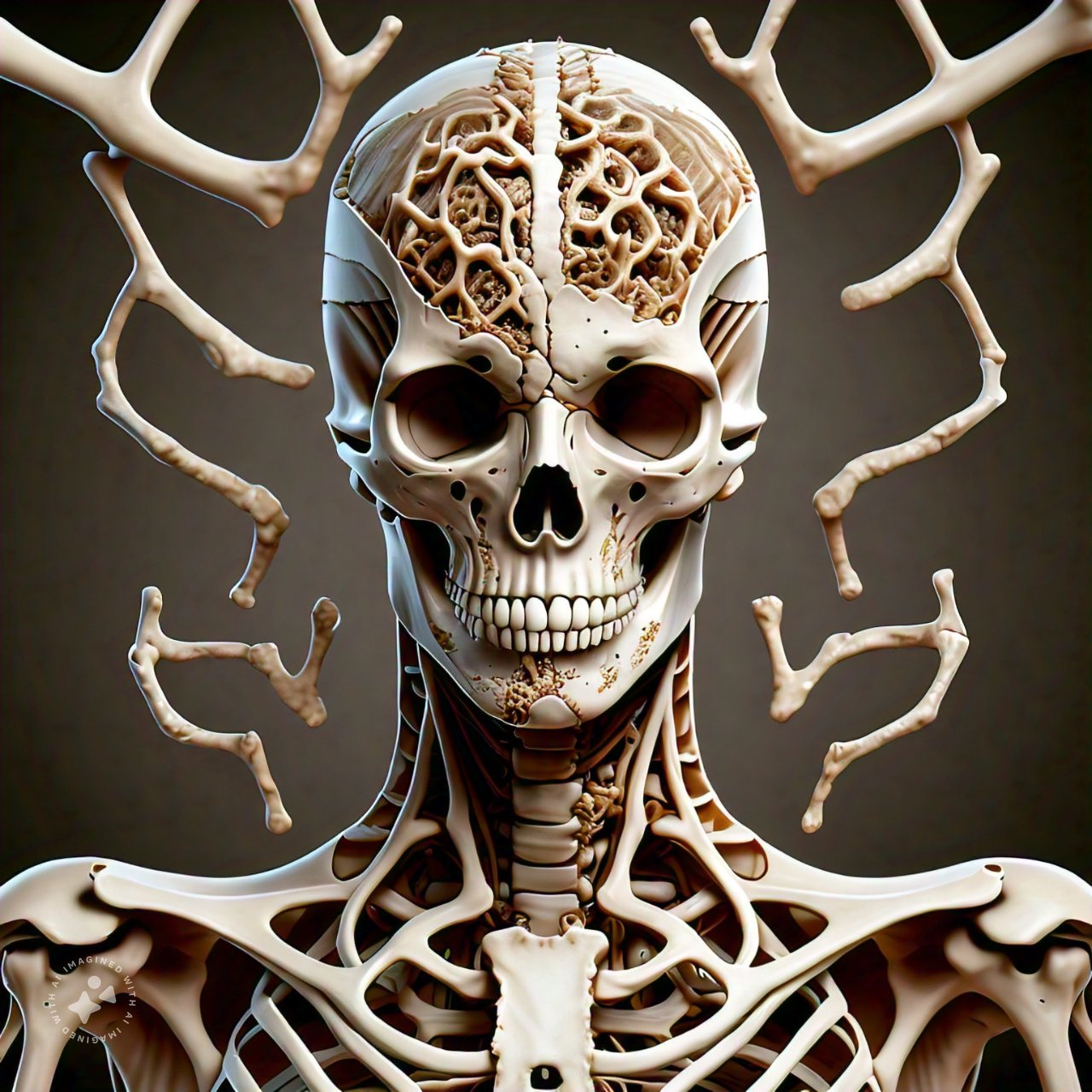
10 Essential Functions to Protect Your Bone Health
10 Essential Functions to Protect Your Bone Health
Discover key functions that help protect your bone health and enhance overall well-being for a stronger future.

Introduction
Importance of Bone Health
Bone health is crucial for overall well-being. Our bones provide structure, protect organs, anchor muscles, and store calcium. Maintaining bone health is essential to prevent conditions like osteoporosis, which can lead to fractures and mobility issues. A balanced diet, regular exercise, and avoiding smoking and excessive alcohol are vital for strong bones. Early detection and treatment of bone-related issues can significantly improve quality of life.
Overview of Bone Functions
Bones are more than just the framework of our bodies. They perform several critical functions, including providing structure, protecting vital organs, facilitating movement, storing minerals, and producing blood cells. Each function plays a vital role in maintaining overall health and well-being. Understanding these functions helps us appreciate the importance of bone health and the need for preventive care and treatment.
Read also: Slim Waist: 7-Day Plan for a Strong Core

10 Essential Functions to Protect Your Bone Health
- Support and Structure Bones are the body’s support system, providing structure and shape. They form the skeleton, which supports muscles and organs, allowing us to stand upright and move. Without strong bones, our bodies would lack the necessary framework to function correctly. Ensuring bone health through proper nutrition and exercise is crucial for maintaining this support system.
- Protection of Vital Organs Bones play a critical role in protecting our vital organs. The skull encases the brain, the rib cage shields the heart and lungs, and the vertebrae protect the spinal cord. This protective function is essential for survival, as it prevents injuries to these crucial organs. Maintaining bone density and strength is vital to ensure they can effectively perform this protective role.
- Movement Facilitation Bones work in conjunction with muscles to facilitate movement. Joints, where bones meet, allow for flexibility and motion. Muscles attached to bones contract and pull on them, enabling us to walk, run, and perform various activities. Keeping bones healthy ensures smooth and pain-free movement, which is essential for an active lifestyle.
- Mineral Storage Bones act as reservoirs for minerals, particularly calcium and phosphorus. These minerals are crucial for various bodily functions, including nerve transmission and muscle contraction. When the body needs these minerals, bones release them into the bloodstream. A diet rich in calcium and vitamin D is essential to maintain this mineral balance and support bone health.
- Blood Cell Production Bone marrow, found within bones, is responsible for producing blood cells. Red blood cells carry oxygen, white blood cells fight infections, and platelets help with blood clotting. This function is vital for overall health and immune system function. Ensuring bone health supports the production of these essential cells.
- Fat Storage Bones store fat in the yellow marrow, which serves as an energy reserve. This fat can be utilized by the body during periods of high energy demand. While not as well-known as other bone functions, fat storage is an important aspect of overall energy balance and metabolism.
- Endocrine Regulation Bones play a role in regulating hormones and maintaining homeostasis. They release osteocalcin, a hormone that influences blood sugar regulation and fat deposition. This endocrine function highlights the interconnectedness of bone health with other bodily systems, emphasizing the need for holistic health approaches.
- Detoxification Bones help detoxify the body by absorbing heavy metals and other toxins from the bloodstream. This function protects vital organs from damage caused by these harmful substances. Maintaining bone health ensures that this detoxification process functions effectively, contributing to overall health.
- Sound Transduction Tiny bones in the ear, known as ossicles, play a crucial role in hearing. They transmit sound vibrations from the eardrum to the inner ear, allowing us to perceive sound. This function underscores the importance of bone health even in sensory processes, highlighting the need for comprehensive bone care.
- Energy Metabolism Bones influence energy metabolism by regulating the release of hormones that affect fat and glucose metabolism. This function is vital for maintaining energy balance and preventing metabolic disorders. Ensuring bone health through proper nutrition and lifestyle choices supports this metabolic role, contributing to overall well-being.

Tips for Maintaining Healthy Bones
Balanced Diet
A balanced diet rich in calcium and vitamin D is essential for bone health. Calcium helps build and maintain strong bones, while vitamin D improves calcium absorption. Include dairy products, leafy greens, nuts, and fish in your diet. Fortified foods like cereals and orange juice can also be good sources.
Regular Exercise
Weight-bearing exercises such as walking, jogging, and strength training help build and maintain bone density. Regular physical activity also improves balance and coordination, reducing the risk of falls and fractures.
Avoiding Smoking and Excessive Alcohol
Smoking and excessive alcohol consumption can weaken bones and increase the risk of fractures. Quitting smoking and limiting alcohol intake are crucial steps in maintaining bone health.
Adequate Sun Exposure for Vitamin D
Sunlight is a natural source of vitamin D, which is vital for bone health. Aim for moderate sun exposure, about 10-30 minutes several times a week, depending on your skin type and location. Always protect your skin to avoid the risk of skin cancer.
Regular Health Check-ups
Regular check-ups with your healthcare provider can help monitor bone health and detect any issues early. Bone density tests can assess your risk of osteoporosis and other bone-related conditions.
Common Bone Diseases and Their Treatments
Osteoporosis
Osteoporosis is a condition where bones become weak and brittle, increasing the risk of fractures. It is often caused by a deficiency in calcium and vitamin D, hormonal changes, or a sedentary lifestyle. Treatments include medications like bisphosphonates, hormone therapy, and lifestyle changes such as diet and exercise.
Arthritis
Arthritis is the inflammation of joints, causing pain and stiffness. Osteoarthritis and rheumatoid arthritis are the most common types. Treatments include anti-inflammatory medications, physical therapy, and, in severe cases, surgery to repair or replace damaged joints.
Bone Fractures
Bone fractures can occur due to trauma, falls, or weakened bones from conditions like osteoporosis. Treatment depends on the type and severity of the fracture and may include immobilization with casts or splints, surgery, and physical therapy to restore function.
Bone Infections
Bone infections, or osteomyelitis, can be caused by bacteria or fungi. Symptoms include pain, fever, and swelling. Treatment typically involves antibiotics or antifungal medications, and in severe cases, surgery to remove infected tissue.
Treatment Options: Medications, Surgery, Physiotherapy
Medications Medications for bone health include calcium and vitamin D supplements, bisphosphonates for osteoporosis, and anti-inflammatory drugs for arthritis. Hormone therapy may also be prescribed for postmenopausal women to maintain bone density.
Surgery Surgical options for bone diseases include joint replacement for severe arthritis, fracture repair, and procedures to remove infected bone tissue. Surgery is usually considered when other treatments are ineffective.
Physiotherapy Physiotherapy plays a crucial role in maintaining bone health and recovering from bone-related conditions. It includes exercises to improve strength, flexibility, and balance, as well as techniques to manage pain and enhance mobility.
Precautionary Steps to Prevent Bone Diseases
Lifestyle Changes
Adopting a healthy lifestyle is crucial for maintaining bone health and preventing bone diseases. Here are some key lifestyle changes to consider:
- Balanced Diet: Ensure your diet is rich in calcium and vitamin D. Include dairy products, leafy greens, nuts, and fish. Fortified foods like cereals and orange juice can also be good sources.
- Regular Exercise: Engage in weight-bearing exercises such as walking, jogging, and strength training. These activities help build and maintain bone density.
- Avoid Smoking and Excessive alcohol consumption. Smoking and excessive alcohol consumption can weaken bones and increase the risk of fractures. Quitting smoking and limiting alcohol intake are essential steps in maintaining bone health.
- Adequate Sun Exposure: Sunlight is a natural source of vitamin D, which is vital for bone health. Aim for moderate sun exposure, about 10-30 minutes several times a week, depending on your skin type and location. Always protect your skin to avoid the risk of skin cancer.
Preventive Measures
Taking preventive measures can significantly reduce the risk of developing bone diseases. Here are some important steps to consider:
- Regular Health Check-ups: Schedule regular check-ups with your healthcare provider to monitor bone health and detect any issues early. Bone density tests can assess your risk of osteoporosis and other bone-related conditions.
- Fall Prevention: Implement safety measures at home to prevent falls, such as using non-slip mats, installing handrails, and ensuring good lighting. Falls can lead to fractures, especially in individuals with weakened bones.
- Healthy Weight Maintenance: Maintain a healthy weight to reduce stress on your bones and joints. Both underweight and overweight individuals are at higher risk for bone-related issues.
- Proper Posture: Practice good posture to avoid unnecessary strain on your bones and joints. Ergonomic furniture and proper lifting techniques can help maintain proper alignment.
importance of Early Detection
Early detection of bone diseases is crucial for effective treatment and management. Here are some reasons why early detection is important:
- Prevention of Complications: detecting bone diseases early can prevent complications such as fractures, chronic pain, and mobility issues.
- Timely Treatment: Early diagnosis allows for timely treatment, which can slow the progression of bone diseases and improve outcomes.
- Improved Quality of Life: Managing bone diseases early can enhance your quality of life by reducing pain and maintaining mobility and independence.
- Cost-effective: Early detection and treatment can be more cost-effective than managing advanced stages of bone diseases, which may require more intensive and expensive interventions.
By incorporating these precautionary steps into your daily routine, you can significantly reduce the risk of developing bone diseases and maintain strong, healthy bones throughout your life.
FAQs
- What are the main functions of bones?
- Bones provide support, protect vital organs, facilitate movement, store minerals, produce blood cells, store fat, regulate hormones, detoxify the body, aid in hearing, and influence energy metabolism.
- How can I maintain healthy bones?
- Maintain a balanced diet, exercise regularly, avoid smoking and excessive alcohol, get adequate sun exposure for Vitamin D, and have regular health check-ups.
- What are common bone diseases?
- Common bone diseases include osteoporosis, arthritis, bone fractures, and bone infections.
- How is physiotherapy beneficial for bone health?
- Physiotherapy helps in maintaining bone health by improving mobility, reducing pain, and enhancing overall physical function.
- What are some precautionary steps to prevent bone diseases?
- Adopt a healthy lifestyle, take preventive measures, and ensure early detection through regular check-ups.


